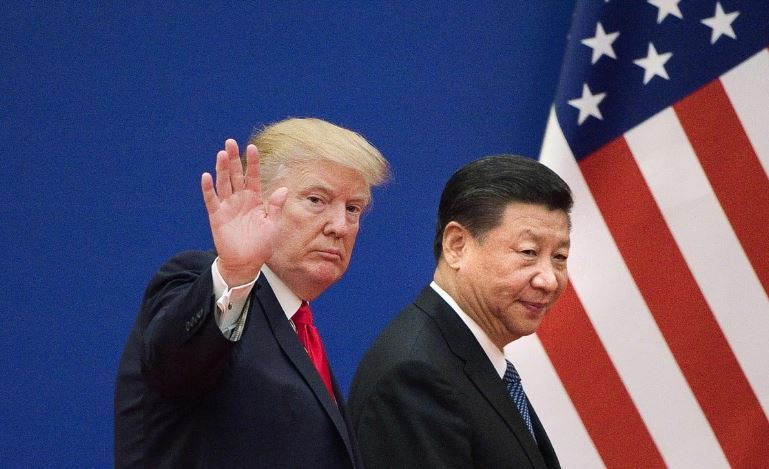China Rejects POTUS Trump's Push for Nuclear Disarmament Talks with Russia, Citing Asymmetry and Defensive Doctrine
China has firmly rejected calls from the United States to join trilateral nuclear disarmament talks with Russia, citing vast asymmetries in nuclear capabilities and strategic doctrine. The response came after U.S. President Donald Trump reiterated his intent to bring Beijing into future arms control discussions, alongside renewed efforts to re-engage Moscow on nuclear limits.
 |
| Image Source: agerpress |
“China’s nuclear strength is by no means on the same level with that of the U.S.,” Lin stated. “We follow a ‘no first use’ policy and keep our nuclear forces at the minimum level necessary for national security. China does not and will not engage in any arms race.”
Lin emphasized that China’s nuclear strategy is defensive in nature and rooted in restraint, suggesting that the push for Beijing’s inclusion was politically motivated rather than a matter of global stability. “Our nuclear policy contributes to world peace,” he added.
The comments follow Trump’s recent remarks during a media interaction in Washington where he said, “We’re talking about limiting nuclear weapons. We’ll get China into that. We’d like to denuclearize.”
His administration has re-opened backchannel dialogue with Moscow following the mid-August Alaska summit, where he met Russian President Vladimir Putin for over three hours.
Trump’s approach signals a marked shift from the Biden-era policy of strategic containment. The White House now seeks a broader non-proliferation framework that includes the United States, Russia, and China -- the top three nuclear powers by arsenal size.
Beijing’s rejection comes amid growing strategic ties between Russia and China, who have recently concluded extensive joint naval patrols in the central Pacific.
The Russian Pacific Fleet reported that the combined group covered over 6,000 nautical miles and carried out anti-submarine and aviation exercises.
Both nations maintain the operations were peaceful and focused on protecting maritime economic zones.
China has also criticized the U.S. for what it calls the “groundless harassment” of Chinese students entering the country.
Lin Jian urged Washington to “stop interrogating or repatriating them,” following reports of increased scrutiny at U.S. ports of entry.
Meanwhile, in Moscow, the Kremlin welcomed Trump’s outreach, with Security Council Deputy Chair Dmitry Medvedev describing the nuclear overture as a “correction of the course of confrontation.”
Russia has also refrained from announcing new retaliatory sanctions, viewing the current diplomatic opening with cautious optimism.
In parallel, Iran is finalizing a long-discussed natural gas deal with Russia via Azerbaijan, further consolidating Eurasian energy and security cooperation outside of Western influence.
Tehran's ambassador to Moscow has stated that final pricing discussions with Gazprom are underway, with deliveries expected to begin in early 2026.
Back in Europe, reactions to Trump’s proposed trilateral framework remain mixed. Berlin and London have cautiously endorsed the idea of reviving arms control, but warned that any new deal must not sideline Ukraine’s sovereignty or reward battlefield gains.
At the United Nations, Secretary-General António Guterres expressed hope that the renewed dialogue could evolve into formal multilateral talks, though no formal UN involvement has been proposed to date.
Analysts suggest the U.S. move is aimed not only at re-establishing strategic stability but also at challenging China’s opacity in its nuclear posture.
However, with growing Eurasian cooperation and alternative diplomatic centers forming, the U.S. will face an uphill task in shaping the global disarmament agenda on its terms.
